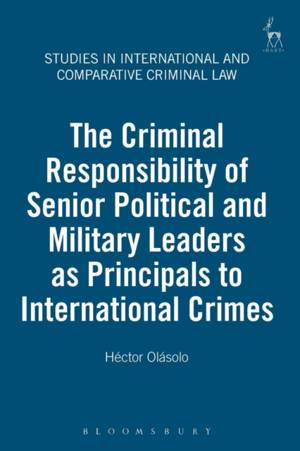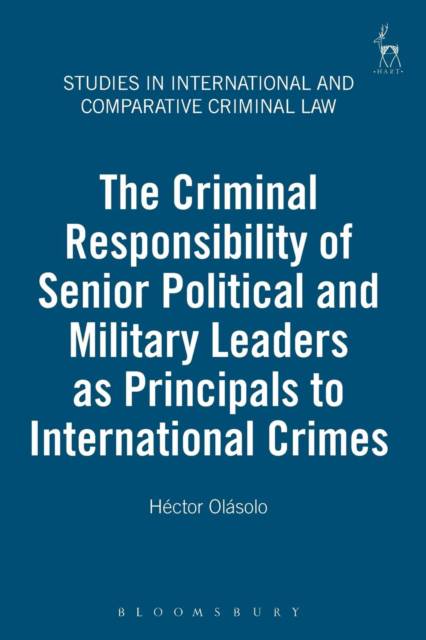
Bedankt voor het vertrouwen het afgelopen jaar! Om jou te bedanken bieden we GRATIS verzending (in België) aan op alles gedurende de hele maand januari.
- Afhalen na 1 uur in een winkel met voorraad
- In januari gratis thuislevering in België
- Ruim aanbod met 7 miljoen producten
Bedankt voor het vertrouwen het afgelopen jaar! Om jou te bedanken bieden we GRATIS verzending (in België) aan op alles gedurende de hele maand januari.
- Afhalen na 1 uur in een winkel met voorraad
- In januari gratis thuislevering in België
- Ruim aanbod met 7 miljoen producten
Zoeken
Criminal Responsibility of Senior Political and Military Leaders as Principals to International Crimes
Studies in International and Comparative Criminal Law
H Olasolo, Adrian Fulford
€ 61,45
+ 122 punten
Omschrijving
As shown by the trials of Slobodan Milosevic, Charles Taylor, and Saddam Hussein, the large-scale and systematic commission of international crimes is usually planned and set in motion by senior political and military leaders. Nevertheless, the application of traditional forms of criminal liability leads to the conclusion that they are mere accessories to such crimes. This does not reflect their central role and often results in a punishment which is inappropriately low, in view of the impact of their actions and omissions. For these reasons, international criminal law has placed special emphasis on the development of concepts, such as control of the crime and joint criminal enterprise (also known as the common purpose doctrine), which aim at better reflecting the central role played by senior political and military leaders in campaigns of large scale and systematic commission of international crimes. The Rome Statute of the International Criminal Court, the case law of the International Criminal Tribunal of the former Yuglosavia, and the case law of the International Criminal Tribunal for Rwanda have, in recent years, played a unique role in the achievement of this goal. This book - now in paperback - is an important and comprehensive study of the modes of responsibility and liability in international criminal law. It fills a gap in the literature, as few books detail the drafting of indictments. It covers both substantive and procedural law and will be useful for students, academics, and practitioners of international criminal law.
Specificaties
Betrokkenen
- Auteur(s):
- Uitgeverij:
Inhoud
- Aantal bladzijden:
- 396
- Taal:
- Engels
- Reeks:
- Reeksnummer:
- nr. 4
Eigenschappen
- Productcode (EAN):
- 9781849460903
- Verschijningsdatum:
- 1/07/2010
- Uitvoering:
- Paperback
- Formaat:
- Trade paperback (VS)
- Afmetingen:
- 155 mm x 231 mm
- Gewicht:
- 589 g

Alleen bij Standaard Boekhandel
+ 122 punten op je klantenkaart van Standaard Boekhandel
Beoordelingen
We publiceren alleen reviews die voldoen aan de voorwaarden voor reviews. Bekijk onze voorwaarden voor reviews.









